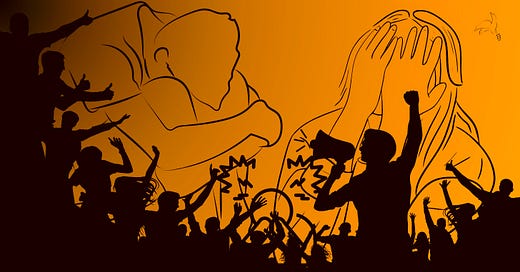Why I haven’t said anything online about the crisis in the Middle East
Questions and stories around silence, complicity, toxicity, apathy and activism
1.
Back in 2012, when I was researching Shallow Breath, I flew to Tokyo then travelled south to Taiji, a small fishing town that had gained worldwide notoriety after the release of the film The Cove. I met up with an activist called Rosie, and we went into Taiji itself under the cover of darkness, to meet up with half a dozen others, each of them…




